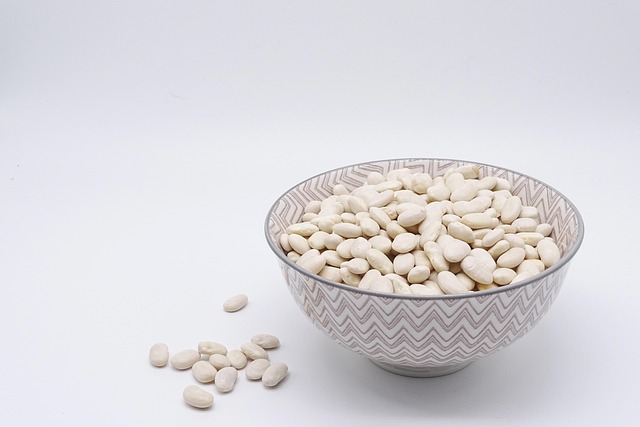Body image is a conversation that takes place inside each of us, shaped by cultural narratives, personal experiences, and the choices we make every day. When we talk about a positive body image, we are not only acknowledging how we feel about our appearance but also recognizing the deep connection between how we treat our bodies and how they respond. Nutrition and lifestyle are the everyday practices that can either nourish or undermine that sense of self‑respect. By learning to feed our bodies with intention and move with purpose, we lay a foundation that supports a resilient, compassionate relationship with ourselves.
What Does Positive Body Image Really Mean?
Positive body image is more than a passing sense of satisfaction; it is a sustained state of acceptance, curiosity, and gratitude toward the physical self. It is the ability to see the body as a vessel that carries thoughts, emotions, and experiences, rather than as a set of measurements to be judged. When we cultivate this mindset, we open ourselves to healthier habits, because our motivation shifts from external approval to internal well‑being. The journey to a positive body image starts with a single step: becoming aware of the messages we hear about our bodies and choosing to rewrite them with evidence, empathy, and self‑care.
Nutritional Foundations for Body Confidence
Nutrition is the language our cells speak. When the body receives a balanced supply of nutrients, it operates more efficiently, feels more energetic, and displays a more vibrant appearance. The following guidelines provide a simple framework that supports a healthy body and a healthy mind.
- Eat a rainbow: Include a variety of fruits and vegetables to ensure a spectrum of vitamins, minerals, and antioxidants.
- Prioritize protein: Lean meats, legumes, nuts, and dairy help repair tissues and maintain muscle tone.
- Choose complex carbohydrates: Whole grains, starchy vegetables, and legumes provide sustained energy.
- Incorporate healthy fats: Avocado, olive oil, and fatty fish support hormone production and skin health.
- Stay hydrated: Water is essential for digestion, circulation, and the elimination of waste.
- Practice mindful portion control: Listen to hunger cues rather than rigid calorie counts.
Balanced Meals and Mindful Eating
Creating balanced meals is a key pillar in fostering a positive body image. A plate that looks visually appealing—half colorful vegetables, a quarter lean protein, and a quarter complex carb—can help you feel satisfied without overindulging. Pair this with mindful eating practices: pause before you start, chew slowly, and savor the flavors. Notice how the texture changes from crunchy to soft, how the aroma evolves, and how your body signals fullness. When you engage all senses, you become less likely to rely on external triggers for food choices, which in turn strengthens the bond between body signals and conscious decision‑making.
Movement, Mindset, and Muscle
Exercise is not a punishment for what we ate; it is a celebration of what our bodies can do. By moving intentionally, we reinforce the message that our bodies deserve care and respect. A balanced exercise routine that mixes cardiovascular, strength, and flexibility work supports physical health and encourages positive body image.
- Cardiovascular: Aim for 150 minutes of moderate activity per week. Walking, cycling, or dancing can lift mood and increase endurance.
- Strength: Three sessions a week of resistance training (body weight, bands, or free weights) helps maintain muscle tone and metabolic efficiency.
- Flexibility: Daily stretching or yoga reduces muscle tension and improves joint mobility.
- Recreational movement: Engage in sports or hobbies that feel joyful rather than punitive.
The Role of Sleep and Stress Management
Sleep and stress are often overlooked but they exert powerful influence on how we perceive our bodies. During deep sleep, the body repairs cells, regulates hormones, and stabilizes mood. Inadequate sleep can lead to increased appetite, particularly for high‑calorie foods, and can dull the enjoyment of physical activity. Chronic stress, on the other hand, elevates cortisol, which can promote fat storage and muscle breakdown.
To support a positive body image, prioritize:
- Consistent sleep schedule: Aim for 7–9 hours each night.
- Relaxation rituals: Gentle stretching, journaling, or breathing exercises before bed.
- Stress coping strategies: Mindfulness meditation, creative expression, or talking with trusted friends.
Celebrating Small Wins
One of the most powerful ways to nurture a positive body image is to celebrate the progress you make, however small. These victories reinforce that your body responds well to healthy choices, which in turn motivates you to continue.
“I didn’t feel a weight drop from my shoulders, but I noticed that my breath felt longer and more effortless. That was a win.” – A daily reminder that health is a journey, not a destination.
Tracking small achievements—such as choosing a salad instead of fries, or walking a few extra minutes—can create a pattern of confidence. Over time, these moments accumulate into a stronger sense of self‑esteem and body appreciation.
Building Long‑Term Habits
Habits are the silent forces that shape our health outcomes. To embed a positive body image into everyday life, we must transform fleeting choices into lasting practices.
Start by setting realistic, specific goals: “I will add an extra vegetable to my lunch tomorrow” is more actionable than “I will eat healthier.” Use a simple tracking system—a journal or a habit app—to note progress. Celebrate milestones, but also practice self‑compassion when setbacks occur; the key is to return to the routine without guilt.
Remember that the journey is not linear. There will be plateaus, moments of doubt, and times when old patterns reassert themselves. Each time you return to your routine, you reinforce the message that you deserve care and that your body is capable of thriving.
Maintaining a Compassionate Inner Voice
How we talk to ourselves shapes the way we perceive our bodies. Negative self‑talk—such as “I’m too big” or “I should lose weight”—creates a hostile internal environment that can sabotage both nutrition and exercise efforts. Replacing these thoughts with kinder, fact‑based statements—“I am worthy of respect” or “I nourish my body with balanced meals”—cultivates resilience.
Practice daily affirmations that align with your health goals: “I choose foods that energize my body,” or “I move with gratitude for what my body allows me.” Over time, these affirmations become second nature, reinforcing a positive body image even during challenging moments.
Putting It All Together
Positive body image is a holistic concept that thrives on the integration of balanced nutrition, intentional movement, adequate rest, and compassionate self‑talk. When these elements come together, the body is not merely a passive vessel but an active partner in our health journey. Each mindful bite, each purposeful stride, each night of restorative sleep, and each kind word spoken to ourselves weave a tapestry of self‑respect and confidence.
As you continue to explore this path, remember that the goal is not a specific number on a scale or a particular body shape. The goal is to foster a relationship with your body that is rooted in respect, gratitude, and ongoing curiosity. When your body feels appreciated, it is more likely to respond with strength, resilience, and joy—an enduring hallmark of a truly positive body image.




